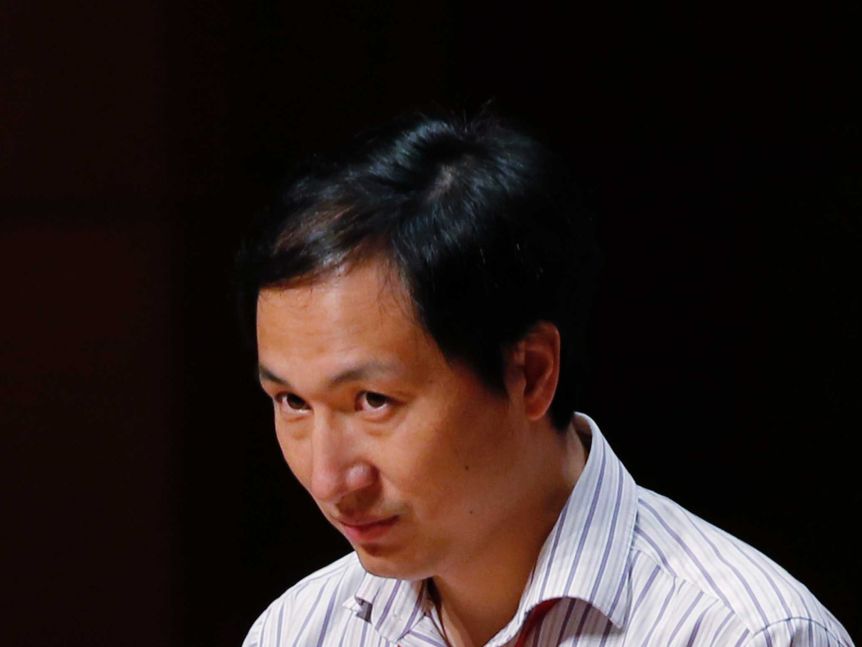
The controversial Chinese scientist who shocked the world by claiming he edited the genes of twin sisters may have inadvertently enhanced their brains, scientists say.
He Jiankui announced last November he had used technology known as CRISPR to alter the embryonic genes of twins Lulu and Nana in an attempt to protect them from infection with the HIV virus carried by their father — a move that received widespread international condemnation.
New research published in the journal Cell last Thursday claims the same alteration to the girls’ DNA — deleting a gene called CCR5 — not only makes mice smarter but also improves human brain recovery after a stroke and could be linked to greater success in school, MIT Technology Review reported.
But Alcino J Silva, a neurobiologist at the University of California, Los Angeles (UCLA), whose lab uncovered the major new role for the CCR5 gene in memory and the brain’s ability to form new connections, said the exact effect on the girls’ cognition was impossible to predict.
He added that was “why it should not be done”.
While there was no proof that Mr He aimed to enhance the babies’ intelligence, he told an international human genome editing summit in Hong Kong last November that he was aware of a previous study co-authored by Dr Silva in 2016 that showed removing the CCR5 gene from mice significantly improved their memory.
The team had looked at more than 140 different genetic alterations to find which made mice smarter.
I saw that paper, and I believe it needs more independent verification, he said in a response to a question asking if he had inadvertently enhanced cognitive ability of the gene-edited babies.
Mr He also told the panellists he was “against using genome editing for enhancement”.
Regardless of Mr He’s intentions, the new research forms part of increasing evidence that the CCR5 gene plays a significant role in the brain.
According to MIT Technology Review, the latest paper on CCR5 also showed that people missing at least one copy of the CCR5 gene appear to perform better at school, therefore suggesting a link to everyday intelligence.
Could it be conceivable that at one point in the future we could increase the average IQ of the population? I would not be a scientist if I said no, Dr Silva told MIT Technology Review.
The work in mice demonstrates the answer may be yes. But mice are not people.
We simply don’t know what the consequences will be in mucking around. We are not ready for it yet.
Mr He, who was fired from his role at the Southern University of Science and Technology in Shenzhen, has not been seen in public since last November, shortly after his gene-editing announcement.
He is now believed to be staying in a heavily guarded university-owned apartment in Shenzhen.
Chinese authorities have also put a halt to all forms of research like Mr He’s and ordered universities to review all research work on gene editing.
Credit: www.abc.net.au/news/2019-02-25/gene-editing-scientist-may-have-made-the-twins-smarter/10845220


